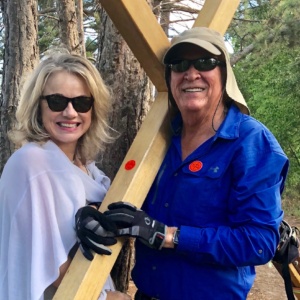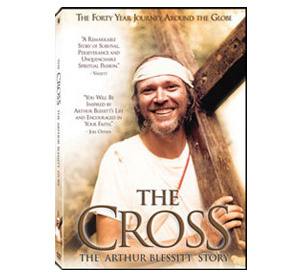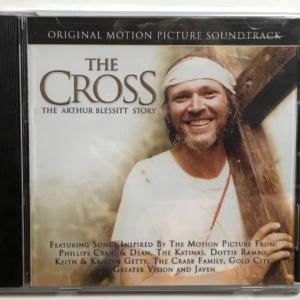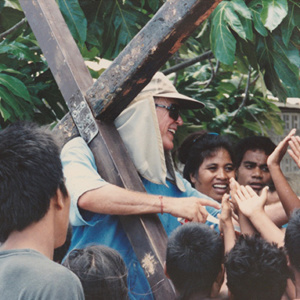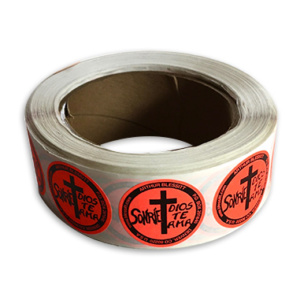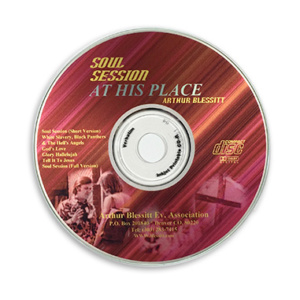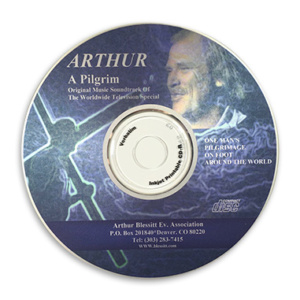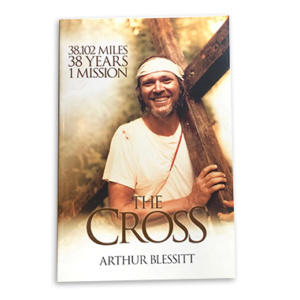The village gathered by the river bank, the drums beat, and Ayo, Jeu and Toyi set off across the river. Leaving the dugout boat until they returned, they waved goodby and leaped into the dark, thick jungle bush. They were loaded with dried meat and smoked fish. They carried spears, bows and arrows, along with some sparkling stones of diamonds and gold with which to exchange for knives when they found some. Every step had to be careful as this was dense forest with huge mahogany trees standing as mountains and below, the animals of the forest. Lizards dashed along rock and dirt banks, and an occasional “green mamba” snake, the most feared snake in Africa, could be seen hanging in a tree ready to strike. The air below the trees was hot and humid, almost stifling and their bodies were covered in sweat dripping to the vine and leaf covered ground. The rainy season was just coming to an end so the weather would be drier as the days went by. Besides they would reach the highlands where it would be drier still.
For several days the forest was thick and the traveling difficult. At streams they often plunged into the cool water and bathed, splashing water everywhere and watching the monkeys swinging in the trees chirping with excitement.
This was tribal territory so they had no difficulty speaking to the people. Along the streams, the women were often gathering water in big hollow gourds that grew in the forest. With one end open it held water perfectly and would also balance on the head. As they neared a village they could hear and smell sounds of life. Smoke lay lazily among the dense trees and the aroma of roasting meat and cooking yams grew stronger as they entered the village. The sound of children playing or goats bleating could be heard. Often as they neared the clearing of swept dirt around each village the children would begin to run about hollering, “Welcome, welcome, stranger, our home is your home.” The old men were about the village in the day while most of the younger men were farming or hunting. It had been a good crop year so there was plenty of “chop” cassava roots and the fruits were in piles near each hut. Babies were tied to their mother’s back as the women pounded roots into powder or went back and forth into the forest carrying large bundles of wood on their heads. Each village welcomed them in style, asking about news from all the villages along the way and offering palm wine, juice from the palm tree fermented in the tropical sun. A good meal was often prepared-boiled rice with fish, squirrel, or rat, nut soup, cassava and fruit.
Often it was war festival time, a commemorative day of joy and worship to some god. Drums beat and the wind blows, and the people dance in splendid rhythm through the night. Time was rushing by and yet they had not reached the great trading center of Yabo, so each morning they rose early and continued on, past endless forests and animal life. Huge river hogs and bush pigs rooted in the soil and sometimes the remains lay where a leopard had feasted on his meal of the day. It was quiet in the dimly lit, moist and windless forest, but high above you could sometimes hear the moving of the wind in the high tree tops stretching up one to two hundred feet toward the heavens. Sometimes the sounds of invisible birds, the shrilling of insects, the yell of a monkey or the crash of a falling branch broke the silence. One could not see far in any direction as the foliage of ferns, shrub bush and dead tree trunks blocked the view. It was a kaleidoscope of colors and changing scenes, antelopes scurrying through the jungle bush, troops of huge gorillas up to 400 pounds charging through the trees, usually made up of an old male, several wives and many young. There were also troops of monkeys, baboons and apes, and even at times you could hear the heavy feet of elephants crashing through the bush. It was life, adventure and leading to the light of truth. Ayo’s mind was constantly filled with wonder as he saw the life around him. “Who made it all? How can I know this true God? I can’t be content to worship the creation. I must know the creator,” he thought.
Weeks had now gone by and they arrived at the trading city of Yabo. He had never seen a village so large. The big path into the village had become crowded with hundreds of people going back and forth loaded with food and things for the market. As they entered the village it was huge in size! There were sheep and goats everywhere, chickens and hogs that were not running in fear. There was a huge market area and it was crowded with hundreds and thousands of people it seemed. He was shocked by things he had never seen before all about-cloth to make clothes, gold and silver bracelets and rings, knives and huge swords. There were traders speaking all languages and only some of the people could Ayo understand. Then he was shocked. Before him stood a new kind of man, brown of skin and with black hair, different-a man from the East he heard, a trader from the land by a great sea, a place of huge buildings, of great armies and learning. Ayo’s heart leaped with joy. This was where to go, but first the knives!
In front of one of the trading stalls covered in palm leaves he spoke to a man to whom he told his needs. The man nodded and took him to the brown trader. The brown trader listened as the stranger spoke to him then turned and walked away. “Wait here”, the African trader said, and soon he was alone in the crowded market. His eyes were filled with wonder and excitement. In a moment he was surprised to see both the men coming his way with four huge men in front carrying great boxes on their heads. They stopped and put them down. The brown man opened the boxes. “Oh”, cried Ayo. He had never seen such! Great swords, big and small knives. He grinned. “How much?” Ayo said. “What do you have?” the African trader said. Ayo nodded at his brother and produced a leather bag containing half their treasure. The brown trader began to examine it carefully. “Do you have more?”
“This is what we have brought to trade.” The trader reached into the box and produced six knives and handed them to Ayo. Then Ayo reached into the box and took out six more plus one large sword. “Thank you,” he said and turned to walk away. The trader shouted and the four huge black men that had carried the box stepped in front with drawn swords sparkling in the light. Ayo calmly turned around and said, “I consider this a fair trade.” The trader waved his hand and said, “Let them go.” They then walked through the market, bought some beautiful silk cloth and feasted on roasted lamb.
They sat around a small fire talking and drinking palm wine. “I must go on, my brothers, you take the knives and cloth back to the tribe. I shall go north to the distant land beyond. Some day I shall return with many knives and great knowledge.” They talked until the late night coolness could be felt then fell asleep under a small bamboo covering.
At early dawn the two companions bowed before Ayo, turned and started off through the crowded streets, south to the Great River. Ayo was gripped to return with them. Behind was the life he knew-before him was the great unknown, yet he also turned and started through the streets north, toward the great dry waste and mystery far beyond. Old women and young girls were dancing through the streets, it was “bundo” time, the initiation into the women’s secret society-a time of great festivities for the ladies with the rites that were unknown to all men.
Any man witnessing a ceremony in the forest was to be killed. After the ceremony, the young girls could then be married, often to men who had paid for them and supported the family since their birth. Women who bore many children, especially girls, brought great wealth to the husband; and women who bore no children were scorned and rejected as cursed.
The air was filled with excitement, drums and singing. A devil woman, dressed in black and waving a wooden black head, led the group carrying a huge string of beads. Ayo wandered through the streets until a hand slapped him on the shoulder. He looked around and there stood the brown trader grinning. He had white cloth about his head flowing down his back and a long multi-colored robe with leather sandals on. A huge long open knife stuck through his belt and he wore a full beard. “Greetings my friend. How are the Gods?”
Ayo was surprised that the man spoke his language. The accent was not correct, but he could understand. “All the Gods are pleased, good sir. You speak to me as I understand. How?”
“Oh, young man, I am a teacher. I must know all things well, and I know you are seeking adventure, say, not?”
“Yes,” replied Ayo. “I seek the mystery beyond the sea of dry death. I want to learn the ways of man and taste of the life beyond!”
“Oh, say now” said the trader sheepishly, “Another Solomon, the great king of Israel, who got everything, only to cry out, “Vanity, all is vanity. Give yourself to pleasure, wealth and adventure, and you have something, give yourself to truth, ah-it’s only the game of fools! But the choice is yours. I need another good man to cross the desert wasteland with us. The way is full of danger and death. If you live you shall have everything you need by the sea.”
“I shall go with you, but I desire only your knowledge. The languages you know, you must teach me. I shall learn and be satisfied.”
Both laughed and side by side they walked a short way to a big tent located at the edge of the village, with the four huge guards standing nearby. Around were camels, some chickens and goats. There were more men and some women gathered under the trees. People were coming and going all around and there was some small trading going on. Ayo had never seen camels before so he gazed at their long necks and huge humps. “Like them? Well, you better, its your life for many months. Those humps don’t hold water, its fat. They can go for days without water, but not us. Like I said, it’s dangerous.
The trader said his name was Beida, and introduced Ayo to all the other men. Each nodded but did not speak. It was a tough lot of men who all seemed quiet and angry, but he guessed it must be the desert life that had molded them and made them trust no one, especially a stranger. He missed the laughter of the children and women at home. He knew now the hunters were coming in from the forest and the food would soon be cooking over the open fires.
Beida showed him to his place to stay. It was inside the big tent, just at the side of the doorway, a small place separated from the big room inside by a thick curtain. “You shall protect me with your life! If you are to learn from me, then I must stay alive. You shall never forget it. Trust no one, and you shall live to see the blue sea by the desert sand!”
He opened the big box and had Ayo choose a sword and sheath. This was to be his, along with a small short dagger that he was to carry hidden under his leather wrap. It now seemed that he was preparing for battle rather than adventure but he had made a decision. After all, he was beginning to like the stranger trader and could hardly wait to start the lessons.
That evening just before dark, two other brown men rushed in and they all talked excitedly to Beida. Everyone could see that something was wrong. But Ayo could not understand anything. He sat by the fire in front of the tent as the men in raised voices spoke inside. The two brown women and several black women were busy preparing the food. A huge pot of rice was boiled, then a chicken, basted in hot pepper and special roots, was poured on top. Onions and cassava bread was laid about it. Soon everyone was eating around the huge bowl, each eating with their hands, and the food was good. Ayo felt sleepy as he lay against a tree.
There were now eighteen men in the camp-the three brown traders, the four huge black guards with shaved heads, and ten other men that looked like a mixture of them all! He could not tell exactly whether the women were all wives traveling with the men or mistresses that would remain behind. There was much wine to drink and after a while Beida went into the tent with the two men and their voices were whispered. Shortly they came out and Beida called for Ayo. “There may be trouble. There is a war nearby; one tribe has knives and the other tribe doesn’t. The tribe without wants our knives. If we gave them away, we could never trade here again, and the other tribe would consider us their enemy. They have no ivory or gold. We may have to leave suddenly. The tribe may attack at any time! This is the hell of this life. With things people want, there is no safety! The camels will be ready to leave at dawn. It’s only a short way to the Sahara grasslands where we have a good chance, but there is a short strip of forest before we get there-this is our danger.”
Guards were posted all around the camp. Ayo sat against a tent rope just inside and listened to the wind blowing in the trees. Then he heard the sound of chanting of jugu men and the smell of cooking. Around them the jugu men were casting evil spirits on them and soon, at dawn, they would attack. There was no doubt. He called to the inner tent divider and called to Beida. The trader was soon by his side.
“Those people I know. The jugu priests are calling the spirits to destroy us. I fear no man, but the evil spirits are too mighty. We must sacrifice a life to overcome their power. It is a must! And now!” Ayo spoke firmly and unbuckled his sword.
“No! We shall need every man. Forget about the spirits. There are either no Gods or too many to worry about. I say it is us against them. You see the camels. They will not attack them unless absolutely necessary. They are loaded with ivory, food and water. There are two bags filled with gold and diamonds. I shall carry one. You put the other around your waist. I must trust someone, and you need me, so no matter what, stay with me!”
The first spark of light was just beginning to cross the starless sky as everyone made ready to leave. The local women had fled during the night leaving only the two trader women behind. As they began to form the seven camels into a row and as Ayo was carrying the only box of linen unsold to the lead camel, there was a sudden scream, drum beats, and arrows landed all around, followed by sharp spears. There was the scream of pain from among the defenders and then the fast charging of bodies of the attackers were everywhere. Ayo dropped the box and charged toward the screaming force. He swung his sharpened sword with terrifying power, cutting off first an outstretched arm, then thrusting the sword deep into another stomach, then twisting the knife blade. All about was fighting. They were outnumbered many times but the swords were a great equalizer, although not enough. By now several of his own men were lying in the dirt and now they could hold out only a short time. He felt a sharp pain high in his right shoulder. He spun around. His arm pained him and he felt a crack on his head. He slowly slumped to the ground. For a moment he was dazed, then turned just in time to see the on-coming spear. He ducked and charged up, cutting the man in two with one mighty blow.
He was dazed but now turned into a crazed fighting madman, cutting and stabbing and lashing out at everything in his path. Then he heard Beida scream. He rushed the man about to thrust his spear into the trader and struck him with his fist, sending him sprawling. “There is no way! The Jugu is too strong.” Then he saw the box lying on the ground half full of knives! He leaped toward them and with one great heave he threw them all into the air. The knives sparkled with the first dawn of light upon them and with a mighty cheer attackers began to scoop into the dirt to retrieve the priceless treasure.
Ayo lifted Beida to a camel and cried “hold on”-then he began leading them at a run through the village and toward the trail leading north. He heard footsteps far behind him, yet he raced on through the fast lighting sky. He continued on through the broad trail until Beida shouted “Right, go through there, it’s only a short way to the grass!” It seemed as if Ayo would drop at any moment. He was weak, and his arm was numb, yet he charged on like a wounded lion. They went slowly up a steep hill, staggering and weaving, bushes and vines tearing his legs.
At the top it seemed as if he could see for miles. A rolling land lay before them, only small bush trees and green land. At the edge of the great savana plain and under a small but ancient tree, Ayo fell into the tree’s shadow and peace came at last!


